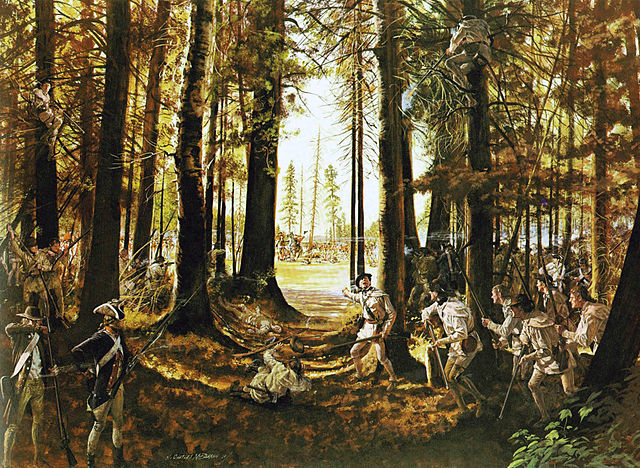
The stalled Russian convoy reminds me of British General John Burgoyne's army on the way to the Battle of Saratoga in 1777. Both past and present feature huge slow-moving convoys, constant harassment, logistical nightmares, and fatal underestimates of local resistance. 🧵
https://twitter.com/WSJ/status/1499829576498823169
Like the Russian convoy, Burgoyne led a massive wagon train overland that was slowed by heavy rains, muddy roads, unwieldy artillery, and constant attacks and sabotage by Patriot militias that felled trees across roads and blew up bridges to slow Burgoyne's march. 

Like the Russian convoy, Burgoyne's poor planning created a logistical nightmare as the delays caused his army to run out of food and supplies, compelling him to divert plans and stall his army's progress so he could resupply his slow-moving forces.
Like the Russian convoy, Burgoyne and his officers badly underestimated local resistance, thinking their forces could easily crush the “uncouth militia” sent against them--who they were convinced would turn and run in the face of battle against a real army. 

Like the Russian convoy, Burgoyne's army was routed by local resistance, losing nearly an entire expeditionary force he dispatched to Bennington to retrieve all the food and horses they could capture. Only stragglers returned with over 900 men captured or killed. 

It remains to be seen if the Russian convoy meets the same fate as Burgoyne and his troops at the Battle of Saratoga: a devastating loss for the invading army that changed the course of the entire war.
Let's hope history repeats itself.
Let's hope history repeats itself.

• • •
Missing some Tweet in this thread? You can try to
force a refresh










